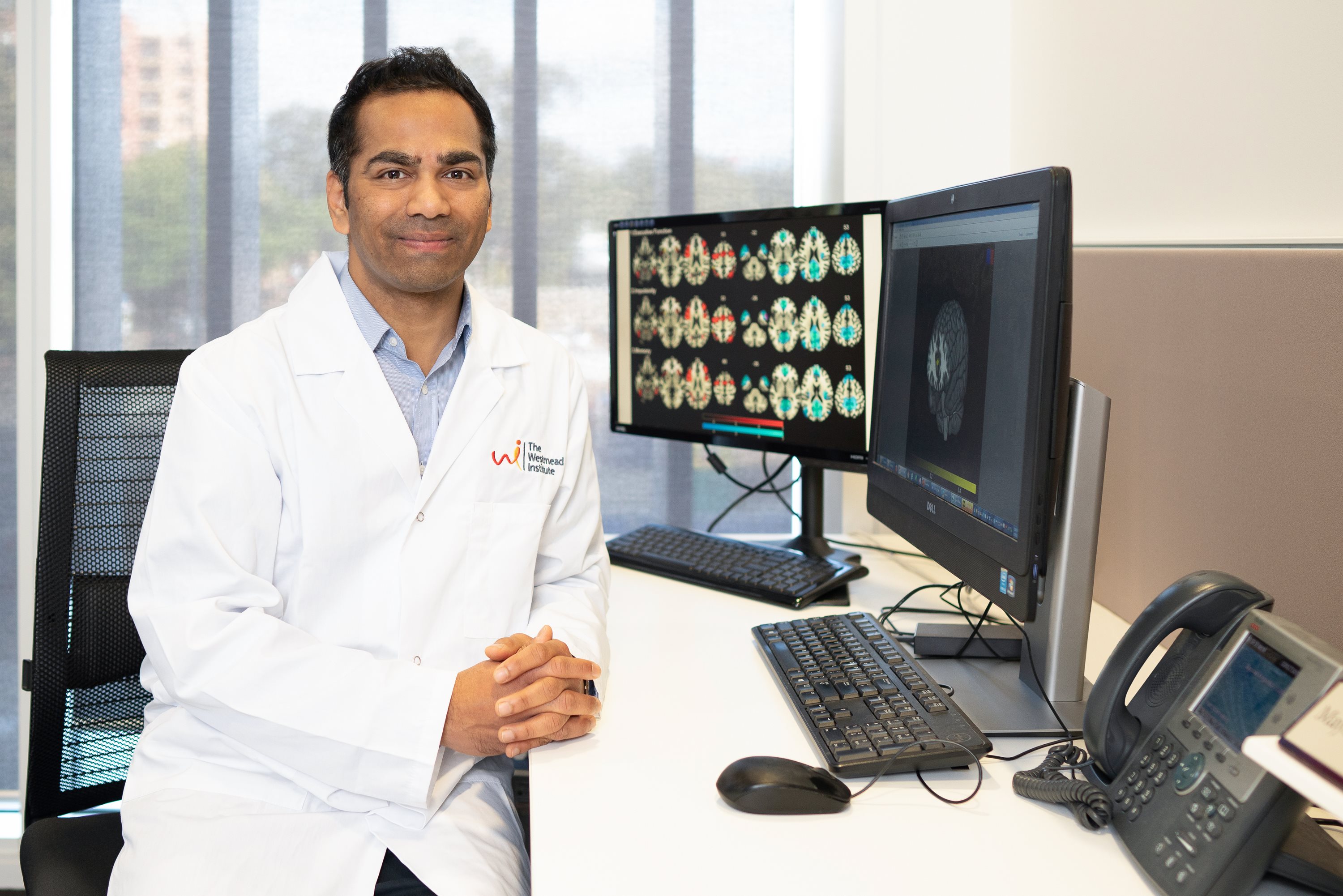July 31, 2019 Print
A new study currently underway at The Westmead Institute for Medical Research aims to find biomarkers that will help identify people with antidepressant-resistant depression, enabling earlier access to other, more effective treatment.
 Associate Professor Mayuesh Korgaonkar is leading a study that could improve the identification of people with treatment-resistant depression.
Associate Professor Mayuesh Korgaonkar is leading a study that could improve the identification of people with treatment-resistant depression.
Major depressive disorder, or major depression, affects more than 300 million people and, according to The World Health Organization, is the leading causes of disability worldwide.1
Antidepressant medication is the first line of treatment for people with major depression. However, up to 50 per cent of individuals may not respond to this treatment.
Currently, there is no method of predicting how an individual will respond to antidepressant medication.
Lead researcher of the study, Associate Professor Mayuresh Korgaonkar said, “Identifying someone with treatment-resistant depression can take months, and the patient may experience undesirable side effects – such as nausea, weight changes, and fatigue – from antidepressant medication.
“Our study aims to identify people with treatment-resistant depression faster, so they can bypass these unnecessary treatments and months of potential side effects.
“We hope that our research results in helping people to get the right treatment as soon as possible, so they can have a better quality of life.”
The study is currently underway, and the research team are still recruiting participants to be involved.
The team will use an MRI technique called ‘connectomics’ to compare the brain biology of people who are resistant to treatment, and those who have responded to antidepressant medication.
Associate Professor Korgaonkar said, “Connectomics is a cutting-edge field in neuroimaging, which conceptualises the whole brain as an interconnected network.
“Connectomics gives us access to information about the neural architecture that has not previously been available to neuroscientists and clinical experts.
“We will be comparing the neural circuits of people with treatment-resistant depression, and people with depression who have responded to treatment in order to identify biomarkers for treatment resistance.
“Identifying these neural features could potentially help us develop a predictive test that would enable the early diagnosis of treatment-resistant depression, and faster access to more appropriate treatment.”
An individual with major depression is diagnosed as ‘treatment-resistant’ if they do not respond to two rounds of antidepressant medication.
Alternative treatments may benefit people who don’t respond to antidepressant medication.
Patients usually only have access to these treatments after failing to respond to antidepressants medication.
Associate Professor Korgaonkar hopes that the study could help people avoid unnecessary treatment side effects, and gain earlier access to vital treatment.
“It’s great that treatment options are out there for those with treatment-resistant depression,” he said.
“However, these treatments are more expensive compared to antidepressant medication, and require a specialist to administer them, so they are not offered as the first line of treatment.”
Researchers are seeking volunteers aged 18-65 who have been clinically diagnosed with major depression, and have not responded to treatment to participate in the study.
Find out more here: https://www.westmeadinstitute.org.au/research/research-divisions/neuroscience-and-vision/depression-group/projects
Associate Professor Mayuresh Korgaonkar is affiliated with The Westmead Institute for Medical Research and University of Sydney.
The research is funded by Takeda’s COCKPI-T Australia 2018 Research Grants Program.
References
1 The World Health Organization (2008, March 22). Depression. Retrieved from https://www.who.int/news-room/fact-sheets/detail/depression